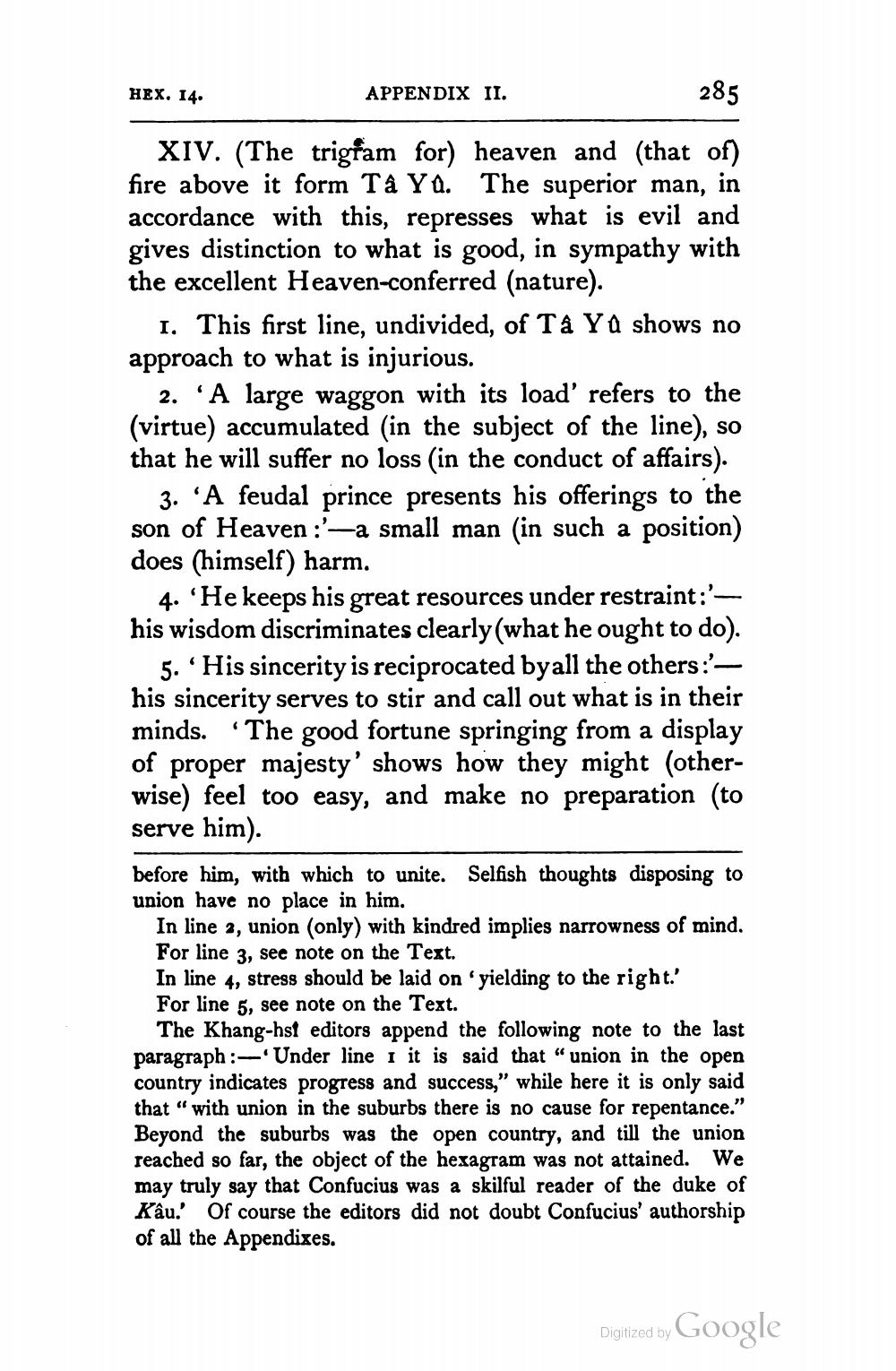________________
HEX, 14.
APPENDIX II.
285
XIV. (The trigfam for) heaven and (that of) fire above it form Tà Ya. The superior man, in accordance with this, represses what is evil and gives distinction to what is good, in sympathy with the excellent Heaven-conferred (nature).
1. This first line, undivided, of Ta Ya shows no approach to what is injurious.
2. 'A large waggon with its load' refers to the (virtue) accumulated in the subject of the line), so that he will suffer no loss (in the conduct of affairs).
3. 'A feudal prince presents his offerings to the son of Heaven :'-a small man (in such a position) does (himself) harm.
4. 'He keeps his great resources under restraint:'his wisdom discriminates clearly(what he ought to do).
5.‘His sincerity is reciprocated byall the others:'his sincerity serves to stir and call out what is in their minds. 'The good fortune springing from a display of proper majesty' shows how they might (otherwise) feel too easy, and make no preparation (to serve him). before him, with which to unite. Selfish thoughts disposing to union have no place in him.
In line 2, union (only) with kindred implies narrowness of mind. For line 3, see note on the Text. In line 4, stress should be laid on yielding to the right.' For line 5, see note on the Text.
The Khang-hst editors append the following note to the last paragraph:- Under line i it is said that "union in the open country indicates progress and success," while here it is only said that " with union in the suburbs there is no cause for repentance." Beyond the suburbs was the open country, and till the union reached so far, the object of the hexagram was not attained. We may truly say that Confucius was a skilful reader of the duke of Kâu.' Of course the editors did not doubt Confucius' authorship of all the Appendixes.
Digitized by Google




